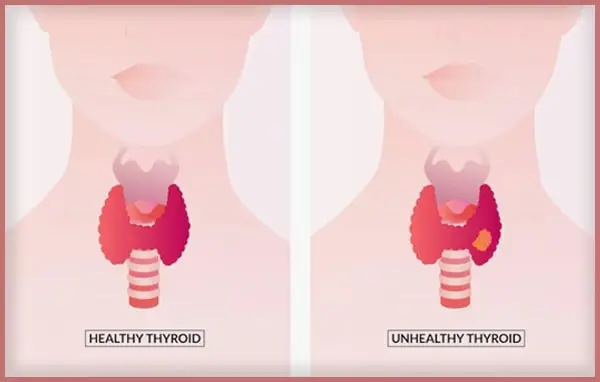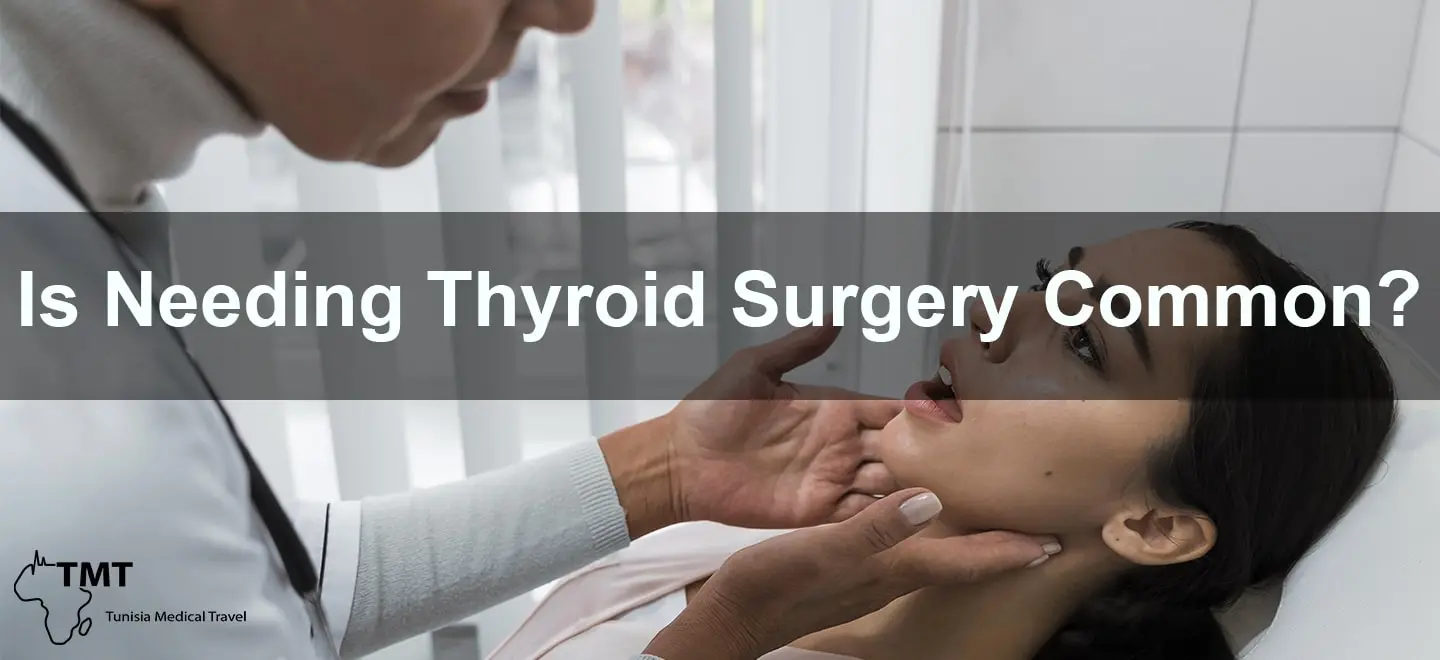Is Needing Thyroid Surgery Common?
Is Needing Thyroid Surgery Common?
Thyroid surgery has become a relatively common procedure, especially with advancements in medical technology and increased awareness of thyroid-related health issues. But is needing thyroid surgery common in the UK? The answer varies based on the condition being treated and individual health factors. Let’s delve into what the thyroid does, why surgery might be necessary, and the types of thyroid surgeries available.
What Does The Thyroid Do?
The thyroid is a small, butterfly-shaped gland located in the front of the neck, just below the Adam’s apple. Despite its small size, the thyroid plays a crucial role in the body’s endocrine system by producing hormones that regulate metabolism, heart rate, and body temperature. These hormones, thyroxine (T4) and triiodothyronine (T3), are vital for maintaining the body’s overall energy levels and metabolic balance.The thyroid gland is controlled by the pituitary gland, a pea-sized gland located at the base of the brain. The pituitary gland produces thyroid-stimulating hormone (TSH), which signals the thyroid to produce and release T4 and T3 hormones into the bloodstream. These hormones then travel throughout the body, affecting nearly every organ and cell.
Thyroid hormones play a crucial role in regulating metabolism, which is the process by which the body converts food into energy. They help regulate heart rate, body temperature, and the rate at which calories are burned. Thyroid hormones also play a role in growth and development, particularly in children and adolescents.
Reasons for Thyroid Surgery
There are several reasons why someone might need thyroid surgery. These include the presence of a goiter, thyroid cancer, and autoimmune thyroid disease. Each condition has its own indications for why surgery might be the best course of action.
Thyroid Goiter
Thyroid goiter, characterized by an abnormal enlargement of the thyroid gland, can vary in size and presentation. While some goiters may cause no noticeable symptoms, others can lead to difficulty swallowing, breathing, or speaking. Depending on the underlying cause and severity, surgical intervention may be necessary to alleviate symptoms and prevent complications.
Nodular Goiter
A nodular goiter involves the presence of nodules, which are lumps that form within the thyroid. These nodules can be benign or malignant and may cause symptoms like difficulty swallowing or breathing. Removing thyroid nodules is often necessary when they grow large enough to cause discomfort or if there’s a suspicion of cancer.
Substernal Goiter
A substernal goiter extends below the sternum (breastbone), potentially causing compression of the trachea or esophagus. This can lead to breathing difficulties and swallowing problems. Goiter removal is typically required to alleviate these symptoms and prevent further complications.
Diffuse Goiter
A diffuse goiter involves uniform enlargement of the thyroid gland without nodules. This type can occur due to iodine deficiency or autoimmune diseases like Graves’ disease. Thyroid extraction surgery might be needed if the goiter causes significant symptoms or cosmetic concerns.
Thyroid Cancer
Thyroid cancer necessitates surgery to remove part or all of the thyroid gland. There are several types of thyroid cancer, including papillary, follicular, medullary, and anaplastic thyroid cancer. Surgery is often the first line of treatment to prevent the spread of cancer and to remove the primary tumor.
Autoimmune Thyroid Disease
Autoimmune thyroid diseases, such as Graves’ disease and Hashimoto’s thyroiditis, can lead to either hyperthyroidism or hypothyroidism. In cases where medication is ineffective or causes significant side effects, surgery might be considered to manage the disease effectively.

Types of Thyroid Surgery
There are several types of thyroid surgery, each tailored to the specific needs and conditions of the patient. These procedures vary based on the extent of the thyroid gland removal required.
Total Thyroidectomy
A total thyroidectomy involves the complete removal of the thyroid gland. This procedure is typically performed for patients with thyroid cancer, large goiters, or Graves’ disease when other treatments have failed. After thyroid removal surgery, patients will need to take hormone replacement therapy for life to compensate for the loss of thyroid function.
Subtotal Thyroidectomy
In a subtotal thyroidectomy, a significant portion of the thyroid gland is removed, but some thyroid tissue is left in place. This procedure is often used for patients with benign thyroid conditions or smaller goiters. The remaining thyroid tissue may still produce hormones, potentially reducing the need for hormone replacement therapy.
Hemithyroidectomy
A hemithyroidectomy involves removing one lobe of the thyroid gland. This surgery is commonly performed when there is a nodule or cancer confined to one side of the thyroid. Patients who have half of the thyroid removed might still retain normal thyroid function, depending on the remaining gland’s health.
Completion Thyroidectomy
A completion thyroidectomy is performed after an initial thyroid surgery if cancer is found in the remaining thyroid tissue. This surgery involves removing the rest of the thyroid gland to ensure all cancerous cells are eliminated. It’s an important step in preventing the recurrence of thyroid cancer.Thyroid surgery, while common, is a significant medical procedure that requires careful consideration and consultation with a specialist. Whether it’s for goiter surgery, managing cancer, or addressing autoimmune diseases, understanding the reasons and types of surgeries available can help patients make informed decisions about their health. If you or someone you know is considering thyroid removal or has questions about can you have your thyroid removed, it’s crucial to discuss these with a healthcare provider to ensure the best possible outcomes.
In conclusion, while needing thyroid surgery may not be as prevalent as some other medical procedures, it is not uncommon, particularly in cases of thyroid disorders such as goiter, cancer, or autoimmune diseases. Advances in surgical techniques and medical technology have made thyroid surgery safer and more effective, offering patients improved outcomes and quality of life. As with any medical decision, it’s essential to weigh the risks and benefits of surgery carefully and consult with qualified healthcare professionals to determine the best course of action for individual circumstances.
Thyroid surgery is a complex procedure that requires skilled surgeons and careful post-operative management. By understanding the reasons for thyroid surgery and the types of procedures available, patients can make informed decisions about their healthcare and achieve optimal outcomes.

